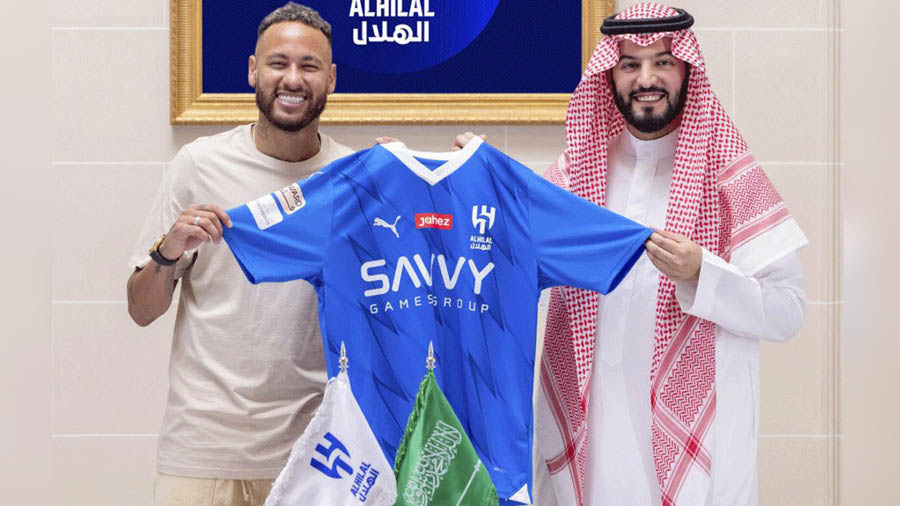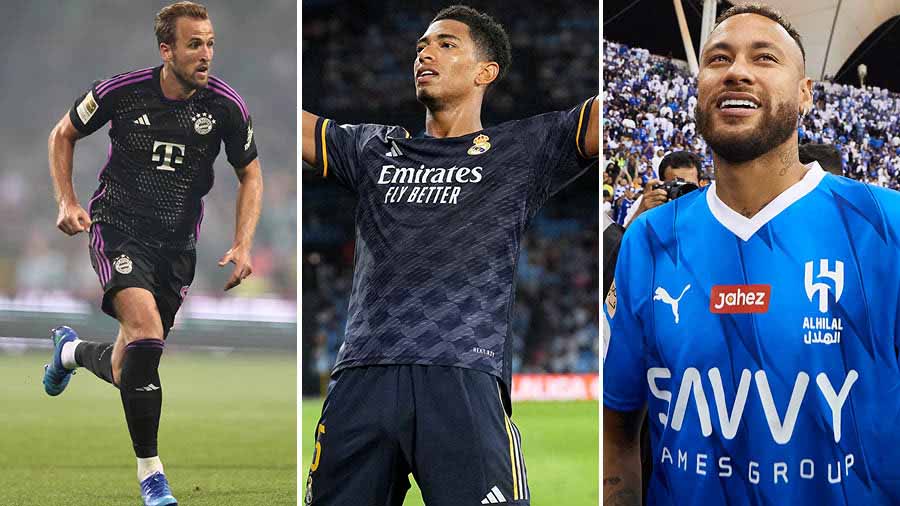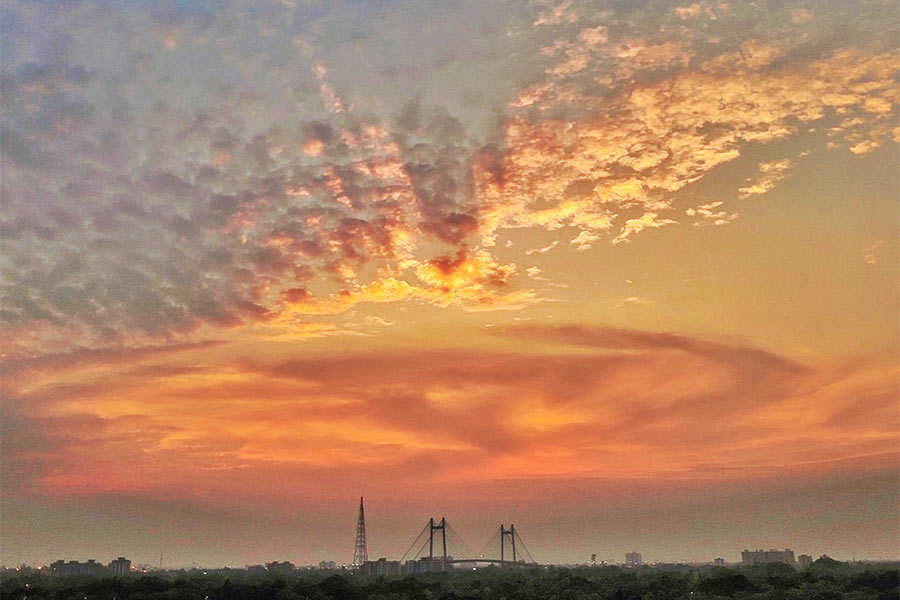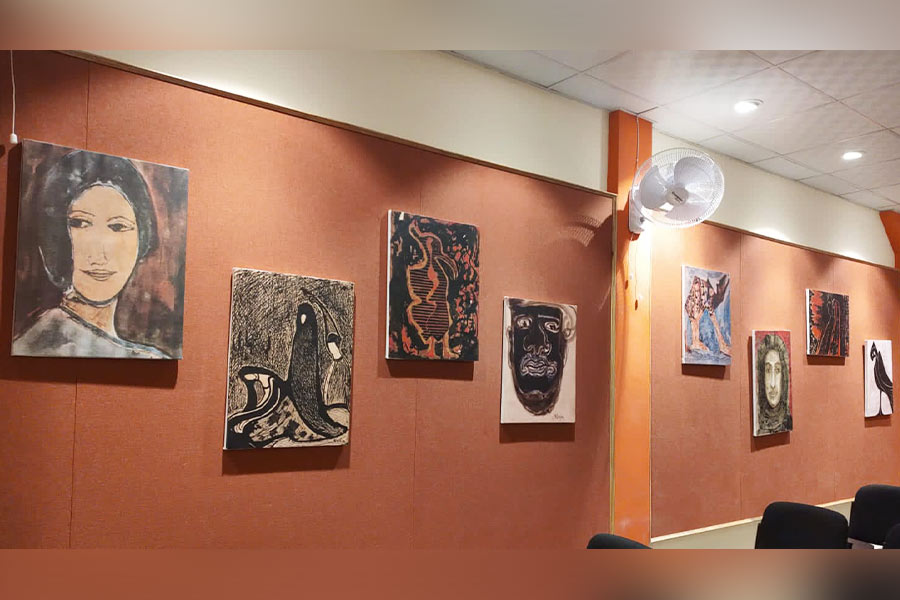Saudi Arabia resurfaced suddenly in footballing first world when they beat eventual champions Argentina in their opening fixture of the World Cup in Qatar late last year. The stadium erupted and countless Saudi fans took to the streets to celebrate one of the greatest upsets in the history of the competition.
As the video of an impassioned half-time speech by Saudi coach Herve Renard spread on social media, the discourse tilted towards the passion for football in West Asia and its place on the global football map. By early this year, Saudi Arabia had graduated from being only a passion story, after a shock transfer set off one of the most high-profile domino effects in football transfer history. My Kolkata delves into the unprecedented bloom of the Saudi Pro League (SPL), its history and the questions it asks.
The History
The first edition of the league took place in 1976-77, when Saudi’s regional leagues were consolidated. Beginning with eight teams and expanding to 12 by 1984-1985, the league was on a growth path with an ambitious aim of helping the country qualify for the FIFA World Cup. After Iran became the first from the region to qualify for the World Cup in 1978, its neighbours had also started harbouring dreams. To give this dream a fillip, Saudi Arabia restructured its professional football with proper investment and planning in 1990. Four years later, it was playing the World Cup in the US. The league also thrived. Riyadh-based Al Hilal with 18 titles are the most successful team in it, followed by Jeddah-based Al Ittihad and Riyadh’s Al Nassr, both with 9 titles.
The Domino Effect
All cameras were on an embittered Cristiano Ronaldo following Portugal’s quarter-final exit from the 2022 World Cup, which followed his controversial interview with Piers Morgan, where the footballer spoke about his exclusion from his then club, Manchester United, and the culture there. A few days later, Al Nassr announced his name as the league’s biggest signing in a two-and-a-half-year deal worth more than Euro 200 million. What that one move triggered in the following summer transfer season sent shockwaves across the elite European leagues.
Ace striker and reigning Ballon D’Or winner Karim Benzema joined Al-Ittihad, leaving Real Madrid. Sadio Mane, N’Golo Kante, Roberto Firmino, Riyad Mahrez, Edouard Mendy, Aleksandar Mitrovic and Yassine Bounou, among the biggest names in world football, followed Ronaldo and Benzema to Saudi Arabia with the clubs there splurging big bucks in a way that no one saw coming. The icing on the cake was Neymar Jr. signing for Al Hilal in another splashy deal worth over $300 million. As the Saudi transfer window closed on September 7, the league clocked a net spend of $957 million, according to a recently published Deloitte report. With this, the SPL outspent four out of Europe’s five elite leagues, falling shy only of the English Premier League’s billion-dollar net spend.
In the early days of the transfer window, the footballing world compared the moves to the Chinese league transfer boom that had attracted players like Oscar and Carlos Tevez with deals surpassing anything European football could, or rather, wished, to offer. However, unlike the Chinese Super League’s short-lived pull, Saudi Arabia had a more detailed plan sketched out following the arrival of Ronaldo — a sacrosanct crown with the potential to turn the tide for the league and the country. With Benzema’s arrival, the conversation was still limited to the SPL being another less demanding “retirement league” for A-listers past their prime. Not only did the league brush aside this tag but also brought about an inflection point in club football with a project that seemed to know no ceiling.
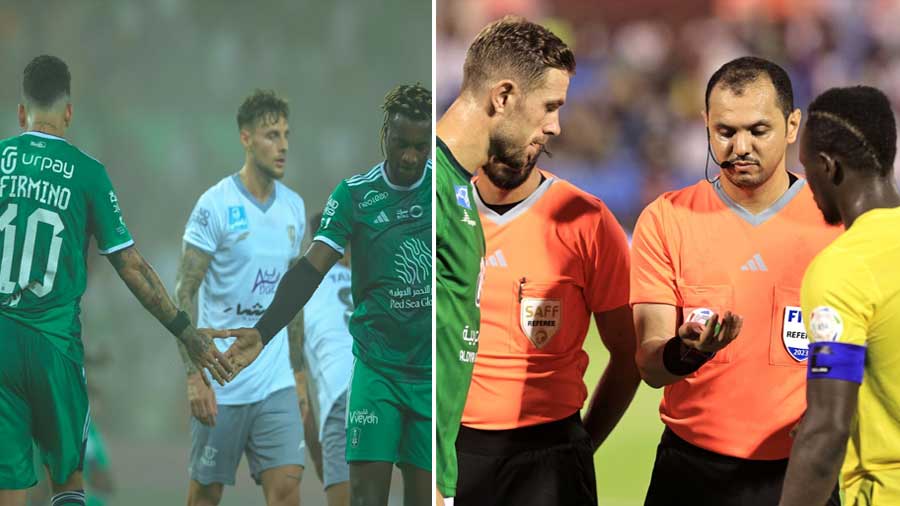
(Left) Firmino and Allan Saint-Maximin in Al Ahli colours, (right) Former Liverpool teammates Jordan Henderson and Sadie Mane donning the captains armbands for their respective teams
Sportswashing versus paradigm shift
Two of the most significant features about the spate of transfers to SPL are that the players are not past their prime and most of the transfers were effected by the four major players in the market — Al Nassr, Al Hilal, Al-Ittihad and Al Ahli. This came after the Public Investment Fund (PIF), a sovereign wealth fund run by the Saudi government and led by Crown Prince Mohammed bin Salman, bought 75% stake in the four clubs, leaving them flush with money while ensuring effective control over the market and furthering the Vision 2030 national development policy.
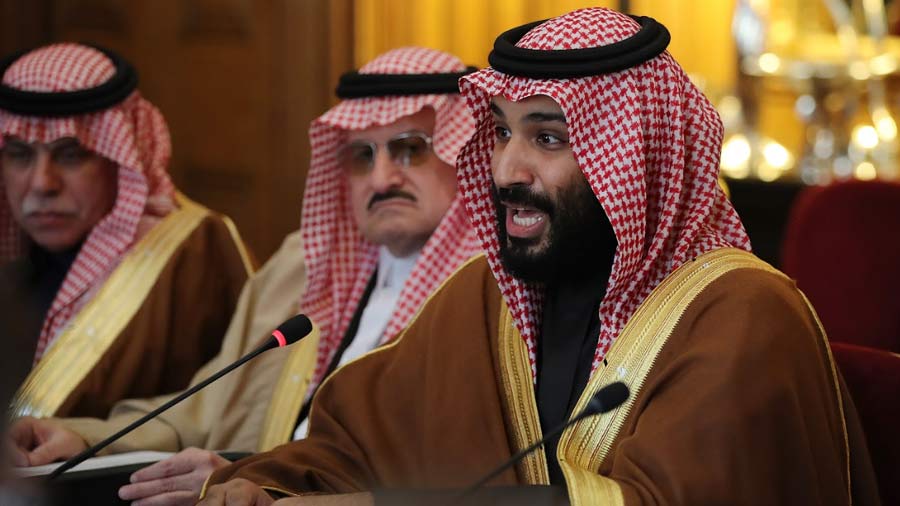
Crown Prince Mohammed bin Salman
The initiatives are in line with a project to increase public sector investment in sports, especially football teams, an objective for Prince Salman. The plan is to provide cutting-edge facilities, promote the league, increase attendance and viewership, and develop sports holistically. All of this is supposed to help Saudi Arabia reduce its dependence on oil resources.
The project has been heavily criticised and dissected by the Western media because of the country’s history of human rights violations. This has been cited as a textbook example of Sportswashing — an attempt to cover up wrongdoings using sports — and a bid to repair the damage to the country’s reputation because of the murder of journalist Jamal Khashoggi in 2019.
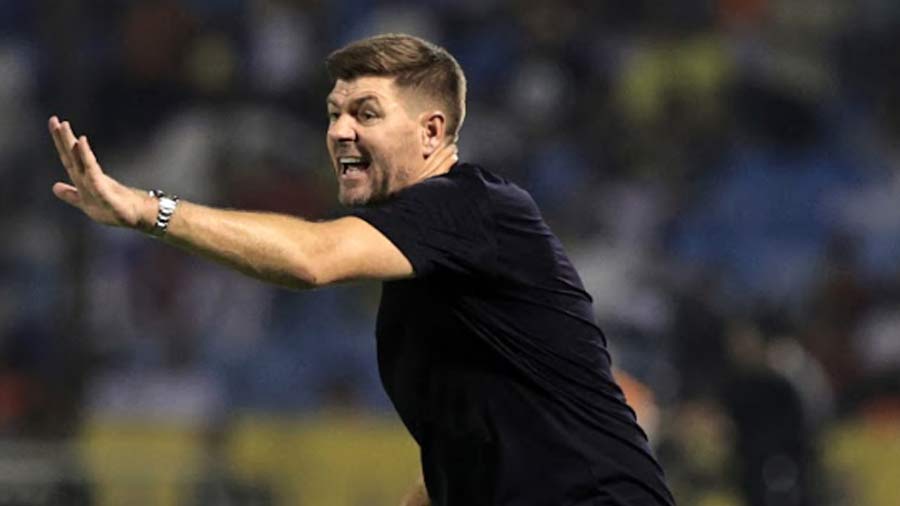
Steven Gerrard was brought in as the manager of Al-Ettifaq FC
Whatever the motives, this also is, for many, an awaited shift in the business of club football. The headlines about Saudi transfers mark a shift away from the Euro-centricity of club football. By signing big names in world football, Saudi Arabia has given Asia a platform to develop its football market, historically sidelined by European monopoly. At the core of the project is Saudi Arabia’s desire to see the SPL recognised as one of the 10 best football leagues in the world. The brown voice has suddenly asked questions and possibly upset the status quo.
Money, get away?
Those critical are mostly blaming the lure of the lucre. The SPL, unlike European leagues, does not need to comply with the UEFA financial regulations. Thus, in addition to the publicly cited transfer fees, the deals include hefty salary packages and perks. It is here the morality question is popping up. Is money soiling the beauty of the common man’s game? Or, was money already controlling the sport and everything was fine as long as it was European money?
In an interview with an Italian news outlet, Senegalese defender Kalidou Koulibaly, who joined Al Hilal from Chelsea, said: “I can’t deny it: I am going to Arabia for the money. With this money I will be able to help my whole family live well, from my parents to my cousins. I will also be able to invest in the activities of my charity Capitaine du Coeur in Senegal. We started to build a clinic in my parents’ town. I have many projects to help young people. I am a Muslim. I am coming to a country that is ideal for me and my family. Mecca is close. I will feel better because I am a believer, so it is important for me.”
Odion Ighalo, former Manchester United striker, said: “I've played for passion all my life. Now it's for money. I’m not one of those players who come and say: ‘I play for passion.' Brother, it's money. At the end of the day, it's money. Is Ronaldo still playing out of passion? Ronaldo has earned 100 times more than I have in my entire life and yet he went to Saudi Arabia. Did he do that out of passion? It’s for money, bro."
Are we questioning the money, or are we questioning the change?


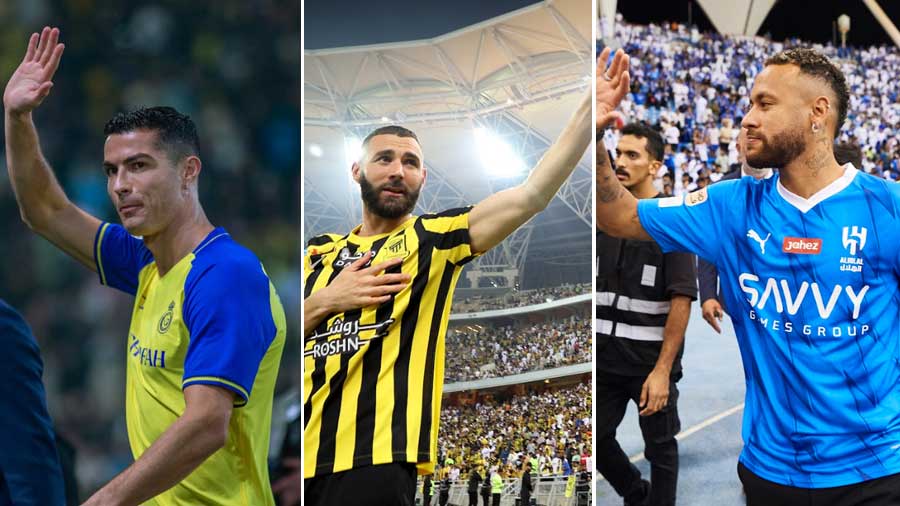
 (@neymarjr)
(@neymarjr)